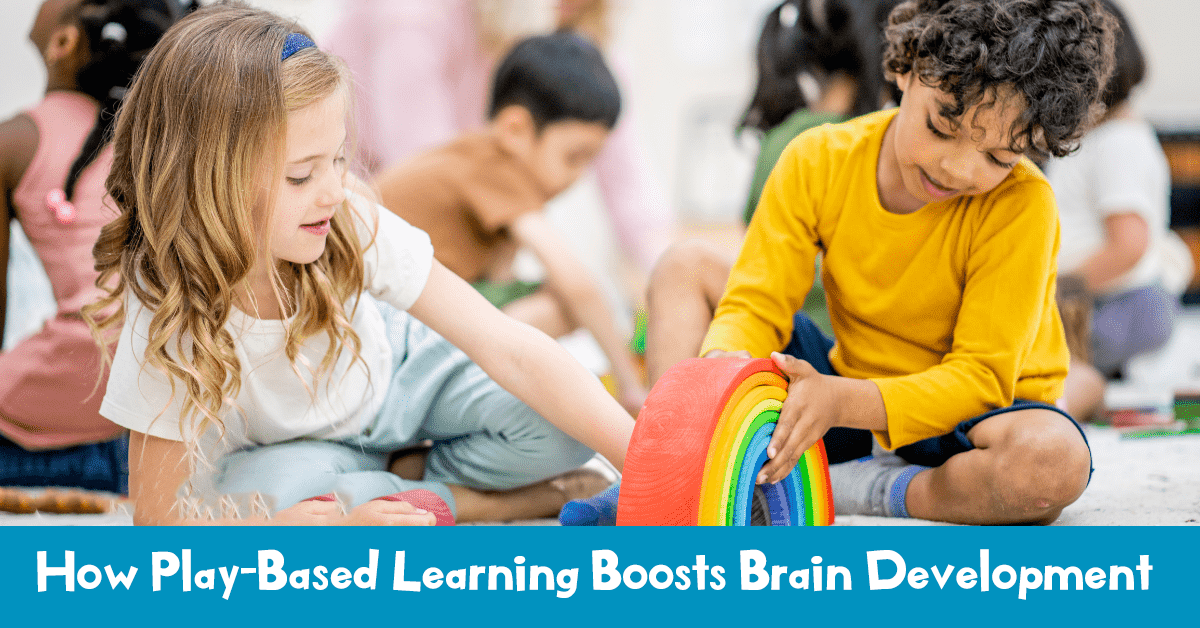Play is far more than just fun for kids; it’s a vital part of how their brains grow and learn. At Kidz Junction Daycare and Out of School Care Ltd., we’ve seen how play-based learning for brain development can ignite curiosity, creativity, and problem-solving skills in children. Every puzzle solved, block stacked, or imaginative story acted out helps young minds form new neural connections, improving thinking, memory, and social skills. Play is not just recreation; it’s the groundwork for lifelong learning.
What is Play-Based Learning?
Play-based learning is an educational approach where children learn through engaging, hands-on experiences rather than just formal lessons. This method encourages exploration, experimentation, and discovery, letting children learn at their own pace. By following their curiosity, kids develop essential skills naturally, including critical thinking, social interaction, and language development.
At Kidz Junction, our programs blend guided activities with free play, ensuring children explore, make decisions, and solve problems while having fun. For example, building blocks teach spatial reasoning, while role-playing encourages communication and empathy. This balance of structured and unstructured play helps children thrive.
How Play Supports Early Childhood Brain Development
Early childhood brain development depends on experiences that stimulate multiple areas of the brain. Play provides this stimulation naturally.
When children engage in play:
- Cognitive development improves as they experiment, make decisions, and solve problems. Even activities like puzzles or matching games help children understand cause and effect.
- Language and communication skills grow when children narrate stories, interact with peers, or engage in imaginative play. This fosters vocabulary and expressive abilities.
Beyond cognitive skills, play supports emotional growth. Children learn to manage emotions, cooperate with peers, and navigate challenges, building resilience and social confidence. Physical play also strengthens motor skills, coordination, and body awareness.
Key Benefits of Play-Based Learning
The benefits of play-based learning are numerous and extend across cognitive, emotional, and social domains:
- Encourages creativity, problem-solving, and curiosity.
- Boosts memory, focus, and critical thinking skills.
- Promotes emotional intelligence and social interaction.
- Supports fine and gross motor development.
At Kidz Junction, our children’s summer programs use these principles to combine fun and learning. Whether it’s an arts-and-crafts session, outdoor adventure, or sensory exploration, children are learning while playing.
Why Day Care Centres Should Prioritize Play
High-quality day care centers like Kidz Junction recognize that play is central to learning, not a break from it. Structured activities paired with free play give children opportunities to develop essential skills naturally. By providing safe spaces for exploration and experimentation, children gain independence, creativity, and confidence.
Through play, children build the foundation for academic skills, social competence, and emotional resilience. Activities that feel like games, such as storytelling, building, or collaborative challenges, are actually boosting brain pathways critical for lifelong learning.
Invest In Your Child’s Future
At Kidz Junction Daycare and Out of School Care Ltd., we know that play is the heartbeat of learning. By nurturing play-based learning brain development, children not only enjoy themselves but also gain the skills needed for academic success, emotional growth, and social confidence. Our programs, including engaging children’s summer programs, provide an environment where learning happens naturally, exploration is encouraged, and curiosity flourishes.
Invest in your child’s future by choosing a place where play equals growth. Come to Kidz Junction and watch your child’s mind bloom through joyful, meaningful, and educational experiences!
Frequently Asked Questions
Q1: How to make a shy child more confident?
Encourage small social interactions, praise efforts, and provide opportunities for independent decision-making. Consistent positive reinforcement helps build self-assurance.
Q2: How do you build confidence in shy students?
Offer supportive group activities, guided play, and individualized attention. Gradually exposing children to social settings while celebrating small wins nurtures confidence.
Q3: What causes extreme shyness in a child?
Extreme shyness can stem from genetics, temperament, early experiences, or environmental factors. Understanding the root causes helps in providing the right support.
Q4: How to build confidence in a sensitive child?
Create safe spaces for expression, encourage problem-solving, and offer gentle guidance. Acknowledging feelings while promoting independence strengthens self-esteem.
Q5: What causes low confidence in kids?
Factors include negative experiences, overprotective parenting, lack of social exposure, or comparisons with peers. Supportive environments help children overcome these challenges.

